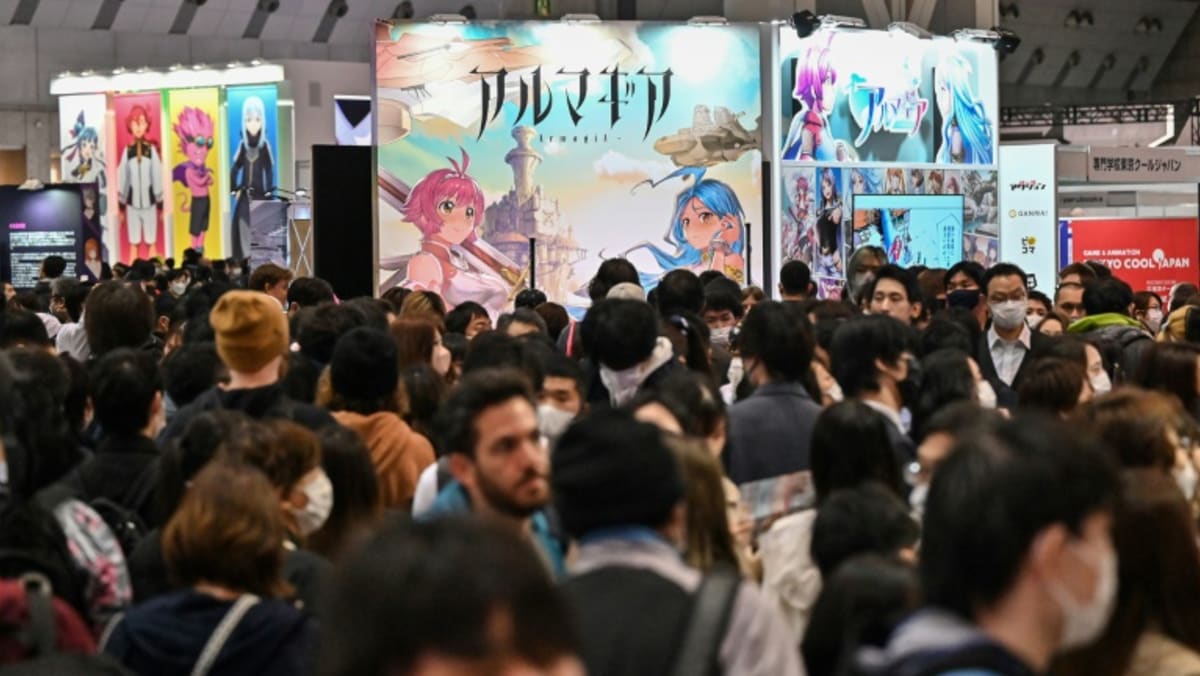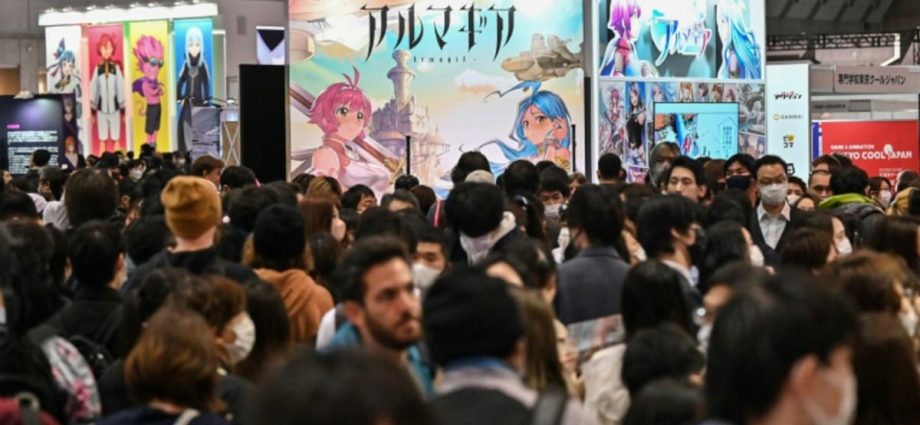
Arima said a core audience for Kadokawa’s novels is “salarymen” – Japanese office workers – in their 30s and 40s.
They may be dreaming of “just switching to jobs that recognise them better”, in defiance of Japan’s ingrained lifetime employment system, he said.
“Since this kind of way of living is not always possible, they might be fulfilling that desire vicariously through these novels.”
The escapism has broad appeal, though, and is increasingly winning over female fans who recognise themselves in previously underappreciated heroines “living their lives the way they want to”, he added.
Popular series include Mushoku Tensei: Jobless Reincarnation – the tale of a 34-year-old “jobless male virgin” who is hit by a truck and reincarnated as an infant with magical powers.
At this year’s AnimeJapan convention, a long line of mostly male fans of the series formed at a booth promoting the show and other works.
“Japan isn’t at its best anymore, so stories like this make me think people might be looking for ways to vent their stress and escape,” one fan, 50-year-old Shinya Yamada, told AFP.
“FREE FROM REGRETS”
Such escapism “serves a therapeutic purpose, although I think it’s kind of sa”d” Yamada said.
Still, isekai’s popularity appears to be growing in Japan and abroad.
A search on a major manga-curating site turns up more than 4,000 works with “isekai” in their titles.
Over the years, the genre has spawned so many works it risked being “overcrowded”, Suehira said, but the subgenres it has generated have helped keep it fresh.
While some isekai narratives start with protagonists escaping their current lives by dying, others are transported into alternate universes in a less violent fashion.
Some iterations see heroes put through gruelling battles for survival featuring outlandish transfigurations into a spider monster or slime.
The increasingly popular “slow life” isekai, however, showcases characters whose new life is stress-free and tranquil.
The variety means that isekai can tap into a broad fanbase – from those fantasising about a more leisurely lifestyle to those imagining a bit more excitement, said Suehira.
The genre offers a fresh start, “free from the regrets or mistakes every person experiences in life”.

